
How to stop your puppy from biting

Philippa Short
27 June 2023
Managing those sharp puppy gnashers can be tricky, but help is at hand!
Expert dog behaviourist Philippa Short explains why pups love to use their mouth and how you can manage your dog’s unwanted biting.
- Why do puppies bite?
> When do puppies stop biting?
> Other reasons why puppies bite and mouth - What not to do when your puppy is biting/mouthing
- How to train a puppy not to bite
> How to stop a puppy from biting when excited
> How to stop a puppy from biting out of tiredness
> How to stop a puppy from biting out of stress or anxiety
> How to stop a puppy from biting out of hunger
> How to stop a puppy from biting out of boredom
> How to stop a puppy from biting when teething
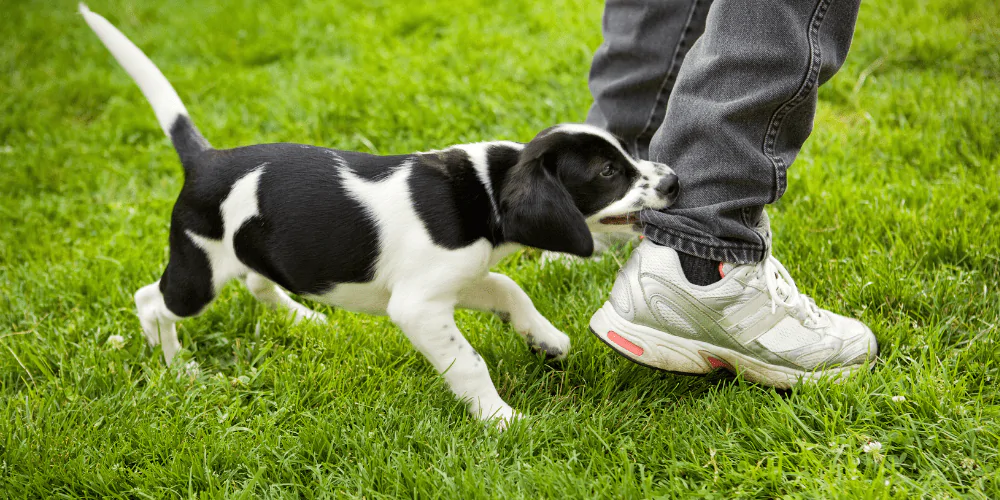
Why do puppies bite?
Puppies have a biological need to explore their world with their mouths. They discover new people and things through sniffing, licking, mouthing, and holding onto them.
It’s also an important bonding process which begins in the litter. Puppies are stimulated by their mother’s maternal licking as well as licking and nuzzling from their siblings.
So it’s no surprise that they’ll continue this behaviour when you bring them home. I personally would allow very young puppies (eight weeks old) to lick, hold, and mouth hands. This is because:
- It helps them to get to know your taste and scent and really bond with you.
- It’s a natural behaviour and stopping it can cause your puppy stress.
- Allowing this bonding process means it will cease over time and the need to mouth will eventually go away.
But you’re also watching for how much pressure they put on your hands. So talk quietly to them and let them mouth quietly and gently.
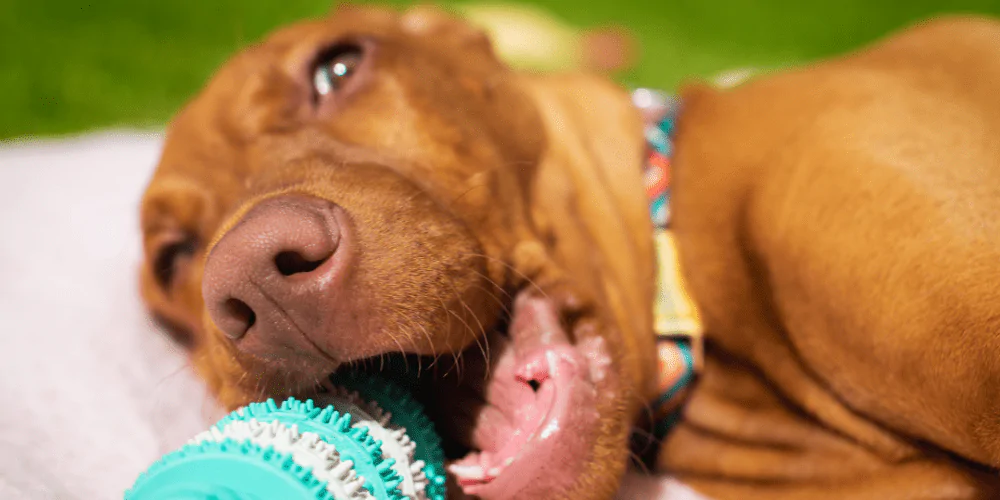
> When do puppies stop biting?
How long it takes for biting and mouthing to stop really varies with each individual puppy. It also depends on how:
- Confident your puppy is
- Quickly they bond with you
- Mouth oriented they are
Gun dogs and working dogs like Cocker Spaniels, for example, are bred to be very mouth oriented. It’s in their genes to be interested in mouthing and fetching, so they can take longer to move away from the behaviour.
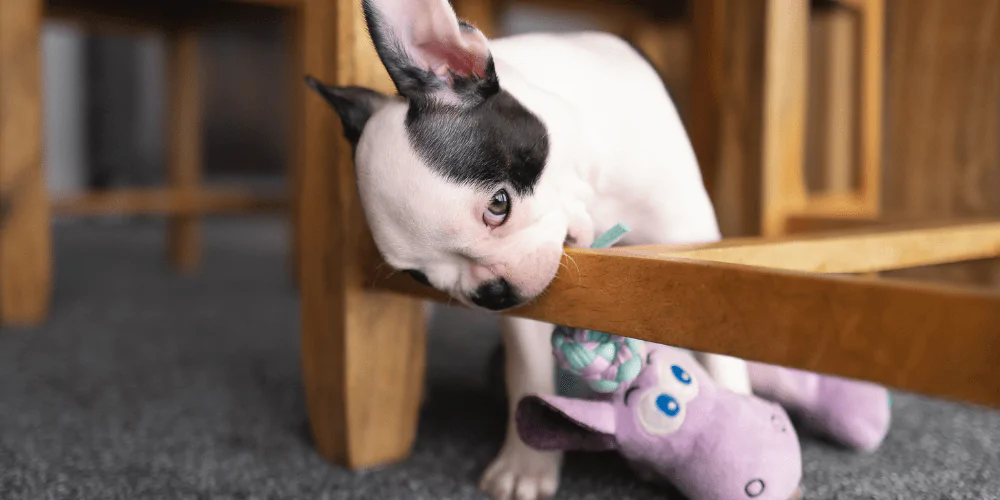
> Other reasons why puppies bite and mouth
Alongside exploring and bonding with you, there’s other reasons why your puppy may be mouthing and biting.
Excitement
Overexcitement can be a common reason for your puppy’s excess mouthing and harder biting pressure.
Many different things can cause your puppy to get overexcited, including:
- When you first come down in the morning to see them
- Manic stroking or excessive petting
- Playtime with children (who are usually very energetic, excited, and high-pitched in play)
- Rough-housing style play like wrestling and rolling them around (which is teaching your puppy how to also be rough in their play with you)
- Grooming time (as they think the brush is a toy)
- Clothing that could be stimulating (think attachments, cords, sequins, extra fabric that dangles or flaps)
Tiredness
Puppies need a lot of sleep and downtime or they can become overtired. This then leads to frustration, manic high energy, and hard biting.
Stress or anxiety
Mouthing can also be a sign that your puppy is stressed and trying to avoid having something done. They may start to nip defensively as a stress response if they see your hands as a worrying thing.
For example:
- Being groomed too roughly
- Having their harness/collar put on too roughly or quickly
- Having their collar grabbed having not yet been taught the collar grab exercise
A chronic break in your puppy’s routine could also make them mouth out of anxiety.
Hunger
Just like a hangry child, your puppy can get antsy when they’re wanting to be fed. They’re also going through lots of growth spurts which will increase their hunger levels.
Boredom
Puppies need a certain level of exercise appropriate to their age. A bored dog is going to look for mischief to keep themselves entertained, which can include inappropriate mouthing.
Teething
Your puppy’s mouth can become very uncomfortable when they start properly teething at four months old. This means their need to grab and hold lots of different textures increases.
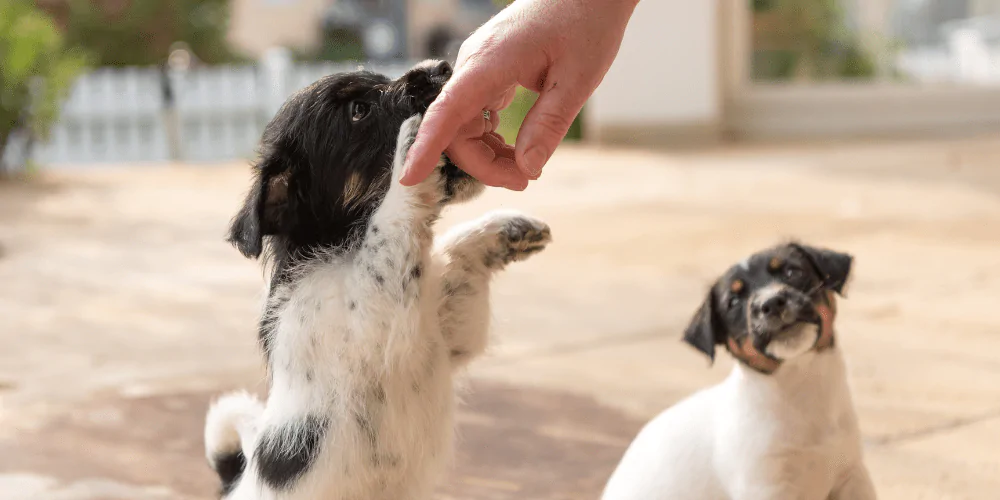
What not to do when your puppy is biting/mouthing
Never tell your puppy off for mouthing your hand. As we’ve mentioned, mouthing is a natural behaviour and a form of bonding that you don’t want to squash.
A big myth of teaching mouthing manners is that yelping loudly will make your puppy let go of you. Although this works in very rare circumstances, usually it just makes your puppy think you’re playing. They will then get excited and mouth you even harder.

How to train a puppy not to bite
A good starting point in training your puppy not to bite is to get them interested in toys. Move and bounce the toy around to distract their mouth attention and then give them lots of praise for interacting with the toy.
Having a variety of different toys when your puppy clearly needs to mouth will also help to keep things fun and interesting.
You’ll also want to teach your puppy how to have their mouth handled. Gently move your fingers around their mouth when they have hold of your hand. Doing this:
- Helps your puppy learn how to take a gentle approach to mouthing
- Desensitises the feeling of having things in their mouth
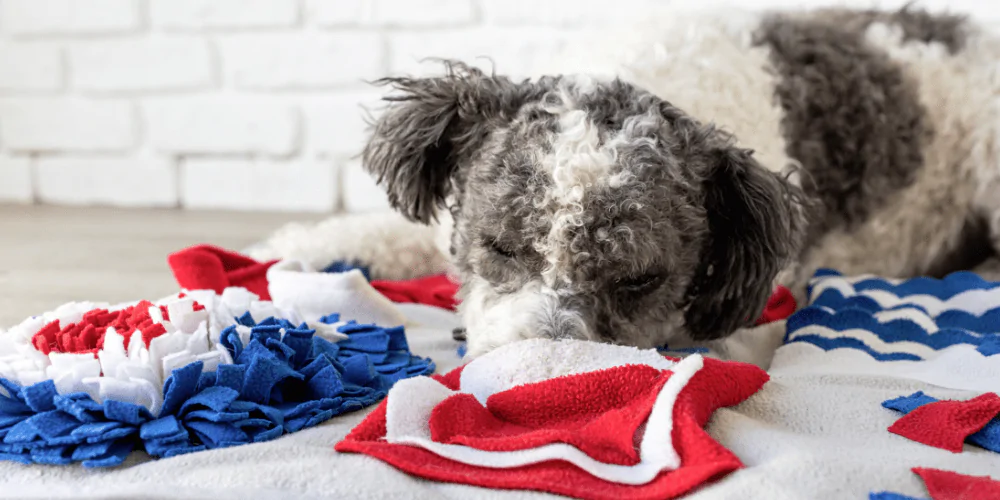
> How to stop a puppy from biting when excited
Having a calm attitude and body language and using management and distraction will help when your puppy is nipping out of excitement.
- Make a toy more exciting than your body and hands. Hands should always equal calmness, including when you’re putting on equipment like a harness and collar.
- Walk and speak calmly when taking your puppy out to the toilet first thing in the morning. Ignore anything they do until they’ve finished their business, then bring a toy or chew to their level.
- Knowing when your kids are going to be most excited (such as coming home from school) is the ideal time to put your puppy in a pen. The separation allows everyone to settle down before they interact.
- Teach children how to calmly spend time with the puppy. This includes things like using calm hands and voices, standing still when the puppy is getting overexcited, and gentle toy play.
- Find constructive activities that kids can do with the puppy. For example, filling up their snuffle mats, reading to them, giving them a stuffed Kong.
- Start grooming early and build it up slowly so your puppy learns it isn’t a form of play. Start with one brush stroke and give them a treat.
- Have lots of toys spread around in the areas your puppy is allowed to go. You can then easily grab a toy whenever you need to distract their mouthing.
If just showing your puppy the toy isn’t exciting enough, try launching it in the air to land a few feet away from them.

> How to stop a puppy from biting out of tiredness
Puppies need lots of sleep but aren’t always able to self-regulate very well. This means you’ll need to enforce rest (like you would with a young child).
Make sure they have plenty of good quality naps and general quiet time in a safe and comfortable space.

> How to stop a puppy from biting out of stress or anxiety
You might notice that your puppy mouths gently and quietly but then there’s certain times when it becomes more manic.
- Try and note down the timings and reasons for the hard grabbing to see if there’s a pattern or specific triggers. For example, this could be tiredness, hunger, a specific noise, being left alone and then seeing you come back in. This will help lead you to address the underlying worry or anxiety.
- Give them a predictable routine (but not overly rigid) so they know when they’re being fed, go to the toilet, etc.
If you’re worried your puppy is showing signs of anxiety or stress, speak to a qualified dog behaviourist.
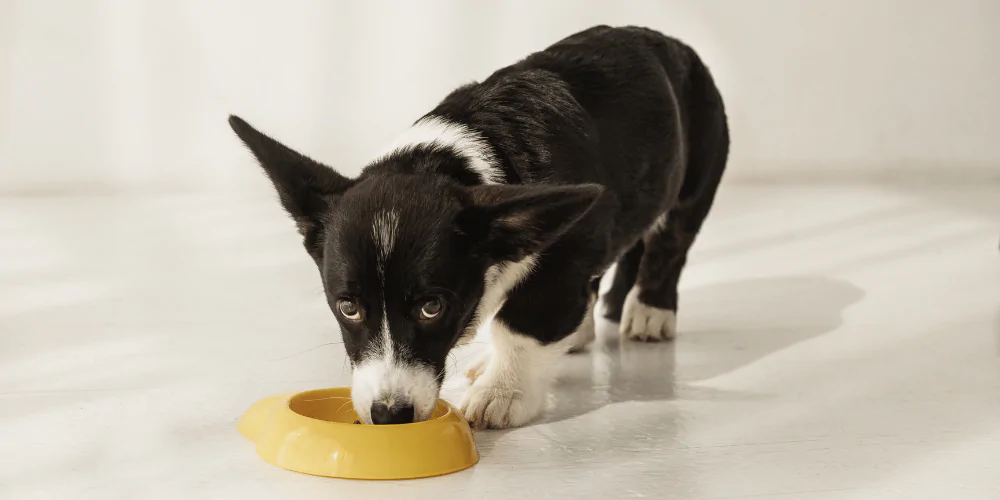
> How to stop a puppy from biting out of hunger
Your puppy should never be left to the point of being genuinely hungry. Always gauge what works best for your pup when it comes to feeding.
- Increase the amount of food your puppy gets according to the growth spurt they’re going through.
- Puppies should be fed twice the need of their body weight than you would give to an adult dog.
- Split their food into more meals for easier digestion and energy level spread. A rough guide is four times a day until four months old, then three times a day until 11 months old.
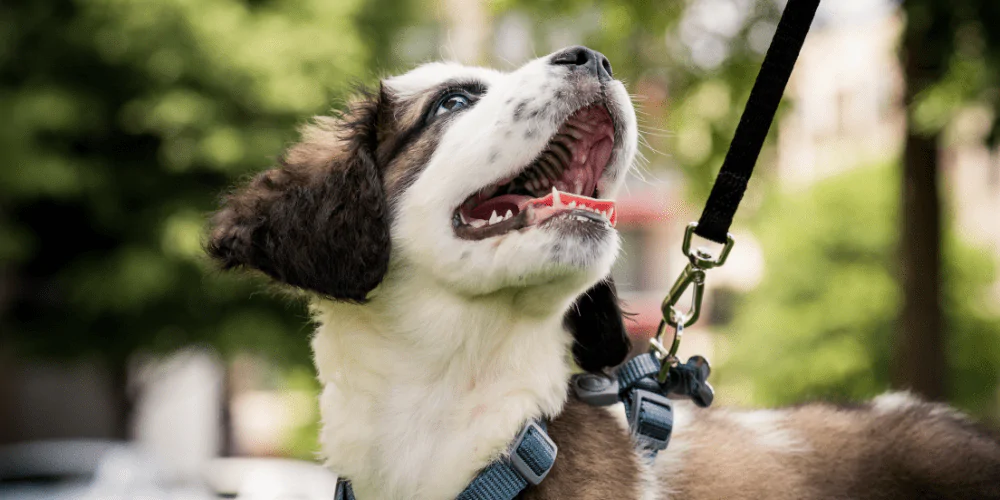
> How to stop a puppy from biting out of boredom
Make sure that you’re giving your puppy enough mental enrichment and physical exercise appropriate to their age. But be careful not to go overboard as this can then lead to tired behaviour.

> How to stop a puppy from biting when teething
Mouthing can get better during teething and then take a sudden downward turn. Remember that your puppy is in discomfort and has increased awareness of their mouth.
Make sure you have a wide variety of toys and chews to help ease your puppy’s discomfort and let them explore different textures.
Protect your playful pup throughout life’s adventures with Petsure pet insurance for puppies.


